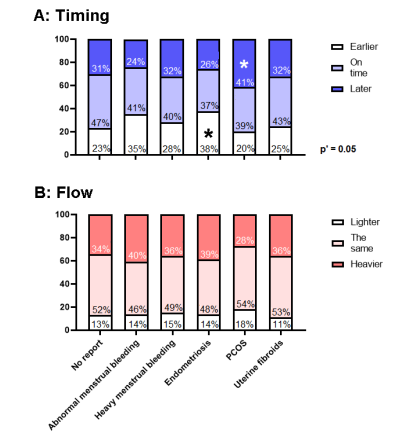
Wondering if #COVID19 #vaccination affects #periods? 💉🩸🤔
So was I!
Preliminary results from my study on this are out today in preprint... 🧵
medrxiv.org/content/10.110…
So was I!
Preliminary results from my study on this are out today in preprint... 🧵
medrxiv.org/content/10.110…
To answer this question, we recruited two cohorts.
Cohort 1 consists of 250 people recruited before they received their COVID vaccine, who are keeping a record of their periods before and after vaccination. 2/
Cohort 1 consists of 250 people recruited before they received their COVID vaccine, who are keeping a record of their periods before and after vaccination. 2/

This cohort will give us an idea of how common it is to experience a menstrual change after COVID vaccination.
But many of them are still tracking their cycles, so we still have to wait for all the data to come in! 3/
But many of them are still tracking their cycles, so we still have to wait for all the data to come in! 3/
Cohort 2 consists of 1273 people recruited *after* they received their vaccine. These people already had their own records of their periods, and of when they received the vaccine. We asked them to use these records to tell us about their experiences. 4/ 

We can't use this cohort to tell us how common menstrual changes after vaccination are: we think that it will be enriched for people who experienced a change and want to talk about it! 5/
But we *can* use it to look for patterns that we would expect to see if there was a biological link between vaccination and menstrual cycle changes.
So what did we see? 6/
So what did we see? 6/
First, the brand of vaccine you receive makes no difference to how likely you are to report a change to your next period. So if there is a link, it is likely to be due to immune activation, rather than any specific vaccine ingredient. 7/ 

A potential link could be mediated by immune effects on the hormones that drive the menstrual cycle. If this is the case, we would expect that people on hormonal contraception would be less likely to experience a change than those naturally cycling.
But we didn't see this... 8/
But we didn't see this... 8/

We could hypothesise that vaccination in the first half of the cycle might delay or prevent ovulation, lengthening the cycle. Then, we would expect to see a change to cycle length mainly in those vaccinated in the first half of the menstrual cycle.
But we didn't see this... 9/
But we didn't see this... 9/

So in this cohort, we did not detect a strong signal consistent with COVID-19 vaccination causing menstrual changes in most people. 10/
However, we did find that people with endometriosis were slightly more likely to have an early period, and people with PCOS more likely to have a late one. This should be investigated further, but in the interim... 11/ 

If you have endometriosis or PCOS, I would still recommend getting vaccinated! Remember that COVID itself can mess with your cycle. 12/
ncbi.nlm.nih.gov/pmc/articles/P…
ncbi.nlm.nih.gov/pmc/articles/P…
ncbi.nlm.nih.gov/pmc/articles/P…
ncbi.nlm.nih.gov/pmc/articles/P…
This isn't a very strong signal, but it could potentially suggest that there is a subgroup of people that might be vulnerable to menstrual changes following COVID vaccination. 13/
It's also important to remember that this was a UK-based study. Different vaccines, or vaccine schedules, used elsewhere might produce different results. 14/
Finally, there are bigger and better-powered studies out there! I did this one because I was frustrated that no-one else seemed to be doing anything. But the bigger ones may be able to detect small or uncommon changes that we could not here. 15/
nichd.nih.gov/newsroom/news/…
nichd.nih.gov/newsroom/news/…
When those report, you can be sure I'll be talking about it. But in the meantime, from these 1273 people...
🩸 No strong signals to support the idea that #COVID19 #vaccination is linked to changes in #periods in most people.
\thread
🩸 No strong signals to support the idea that #COVID19 #vaccination is linked to changes in #periods in most people.
\thread
• • •
Missing some Tweet in this thread? You can try to
force a refresh





